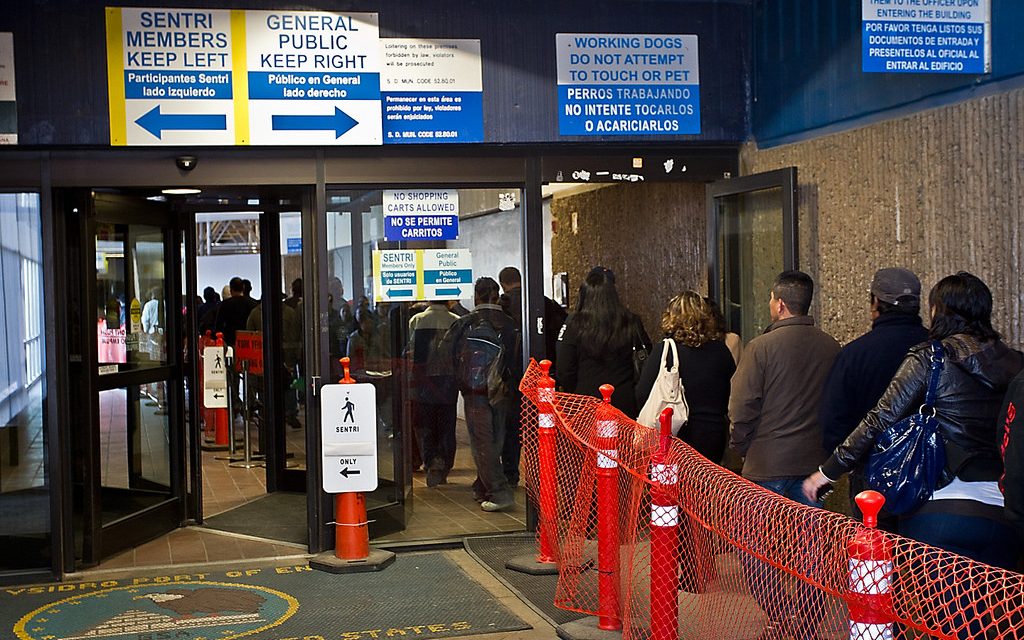A federal court concluded Thursday that the U.S. government’s turning back of asylum seekers at ports of entry along the U.S.-Mexico border—primarily through a practice called metering—not only violates U.S. law, but also is unconstitutional.
Before the Migrant Protection Protocols (MPP) and Title 42, U.S. Customs and Border Protection (CBP) officers began the practice of turning back asylum seekers all along the southern border to keep them from accessing protection in the United States.
CBP’s metering practice, which is a formalized use of turnbacks, stationed CBP officers at the U.S. border to prevent asylum seekers—who lawfully approach U.S. ports of entry to ask for protection—from setting foot on U.S. soil. Asylum seekers who are metered are told that the ports of entry are “full” and turned back to Mexico.
The momentous ruling in Al Otro Lado v. Mayorkas confirms what advocates and the plaintiffs in the case have known for years: the government may not deny asylum seekers their right to access the U.S. asylum process by blocking them from stepping on U.S. soil. CBP officers have a mandatory duty to inspect and process asylum seekers who are arriving in the United States. This duty applies to those who—because of CBP practices—remain outside the U.S. boundary line.
As a result of metering, asylum seekers often would put their names on waitlists that were created out of necessity in Mexican border towns. Although CBP might process a limited number of asylum seekers on a given day, CBP kept no record of the individual asylum seekers who were metered. As of May 2021, there were on waitlists in eight Mexican border towns.
The waitlists generated on the Mexican side of the border only told asylum seekers how long they had been waiting in comparison to others, not when—or even if—they would get access to the U.S. asylum process. Therefore, vulnerable asylum seekers waited for unspecified amounts of time in the dangerous Mexican border region for a chance to access the U.S. asylum process.
Brave individual asylum seekers who were subjected to turnbacks, and Al Otro Lado, Inc., a non-profit legal services organization that serves such asylum seekers, filed a lawsuit in 2017 to challenge the government’s turnback policy. Represented by the American Immigration Council, the Southern Poverty Law Center, the Center for Constitutional Rights, and the law firm Mayer Brown LLP, the plaintiffs asked the U.S. District Court for the Southern District of California to decide the case as a matter of law.
On September 2, 2021, Judge Cynthia A. Bashant found that—as a matter of law—the government may not disregard its duty to inspect and process asylum seekers who are arriving at ports of entry. In fact, U.S. law confirms that this duty is equal in importance to other CBP duties, such as its national security mission.
The federal court has not yet determined the remedy that it will impose for the government’s violations, but the decision serves as an important reminder of our nation’s commitment to those fleeing persecution who arrive at our borders seeking protection. Ports of entry serve as a front door to our country. The government may not simply shut that door to asylum seekers.
FILED UNDER: #CBP #Metering, Customs and Border Protection


